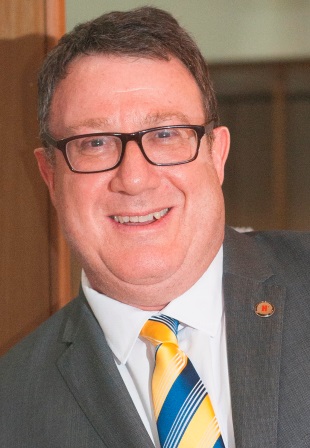GAVIN FINKELSTEIN
Gavin Finkelstein is President, Haemophilia Foundation Australia

The excitement about new and emerging treatments for haemophilia and new technologies buzzed around the WFH Congress in Glasgow. It was hard not to get swept up in the enthusiasm and many people commented that we are entering an era of change not seen for over 25 years since recombinant factors became available in the haemophilia space.
Nevertheless, we need to be cautious and we should not get too far ahead of ourselves, because many of the references were to medicines and technologies such as very novel gene therapies, which had not developed much further than an idea or proof of concept. For many of them, it will mean many years of work in laboratories, and then clinical trials before they might emerge as real contenders in the community.
But there are some new therapies that are very close and, as you will read elsewhere in this publication, some of these are already available in other countries, but not yet in Australia. We continue to work towards getting access for a range of treatments for our community.
The excitement of the discussions in Glasgow has led the HFA Council to another conversation about what the treatment landscape might look like in the future. Will the current patient care and treatment framework and the regulatory and funding processes in place work best with the new treatment opportunities in the offing? Will they be agile enough to assess, evaluate and measure treatment outcomes and costs, and will those processes be able to accommodate the needs and expectations of the community in the future?
From my informal discussions with our community members, I am aware people do have expectations. I think it is important that we make sure there is not false hope and disappointment, and that we work constructively with all stakeholders to ensure accurate information is available and a clear understanding of the expectations and needs of people living with bleeding disorders and their families and carers. Our ongoing dialogue with clinicians and government decision makers aims to ensure timely access to the new treatments that our community needs and relies on solid evidence both about treatment outcomes and the impact of access on the community. This needs a robust discussion about the future we want to see and the pathways we will need to achieve that.
Haemophilia Foundation Australia acknowledges the Traditional Owners and Custodians of Country throughout Australia, the land, waters and community where we walk, live, meet and work. We pay our respects to Elders past and present and extend that respect to all Aboriginal and Torres Strait Islander peoples.
Sign up for the latest news, events and our free National Haemophilia magazine